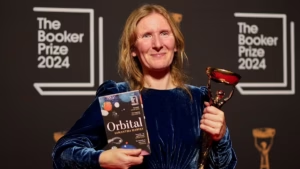Imane Khelif Navigates Gender Controversy at Olympics

Algerian boxer Imane Khelif found herself at the center of controversy during the Paris Olympics 2024, not just for her ring performances but due to widespread misunderstandings about her gender identity. Misinformation initially spread through social media suggested Khelif was male, sparking judgment and speculation without substantial evidence. This confusion was fueled further by the International Boxing Association’s (IBA) decision based on findings that Khelif has an XY chromosome, leading to her disqualification from the World Championships—a decision reflecting a limited understanding of biology and gender complexities. You can view & read the original Facebook post by Gerry Cacanindin at the following URL: https://shorturl.at/kuY6E

The science of sex and gender extends beyond lay perceptions, especially for individuals like Khelif who have Differences of Sex Development (DSD). Many quickly judged based on incomplete knowledge, but biologists affirm that gender categorization is not as straightforward as traditional biology might suggest.
Khelif’s boxing record reveals no unfair advantage. Her amateur record stands at 51-9, with only six knockouts, aligning her with other world-class female boxers rather than indicating dominance. Her major achievements include a silver at the World Championships and gold medals at the African Championships, Mediterranean Games, and the Arab Games, demonstrating her skill and dedication rather than an overpowering presence in the sport.
The controversy deepened when Angela Carini, Khelif’s Italian opponent, quit after a defeat and later apologized. Marlon Borreo criticized Carini for raising the issue only post-defeat, which led to further complications as Khelif’s next Hungarian opponent threatened to withdraw from their match.
Observers like Dan Michael D. Cacanindin have suggested potential racial and geopolitical biases against Khelif due to her Arab identity and the political context involving Algeria’s support for Palestine. These elements add complexity to the challenges Khelif faces, mixing gender misconceptions with geopolitical prejudices.
Promoting informed discussions and understanding the nuances of gender biology is crucial, rather than perpetuating misconceptions and biases that harm athletes’ careers and lives. Khelif’s situation highlights the ongoing challenges in sports related to gender, fairness, and inclusion, underscoring the need for a more educated and empathetic approach to athlete classification and competition









